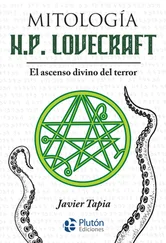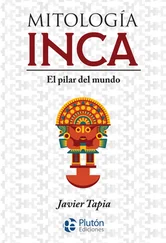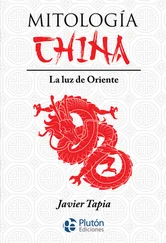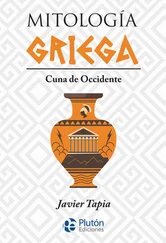. . . And now I have to enter Father Mike’s head, I’m afraid. I feel myself being sucked in and I can’t resist. The front part of his mind is a whirl of fear, greed, and desperate thoughts of escape. All to be expected. But going deeper in, I discover things about him I never knew. There’s no serenity, for instance, none at all, no closeness to God. The gentleness Father Mike had, his smiling silence at family meals, the way he would bend down to be face-to-face with children (not far for him, but still)—all these attributes existed apart from any communication with a transcendent realm. They were just a passive-aggressive method of survival, the result of having a wife with a voice as loud as Aunt Zo’s. Yes, echoing inside Father Mike’s head is all the shouting Aunt Zo has done over the years, ever since she was pregnant nonstop in Greece without a washer or dryer. I can hear: “Do you call this a life?” And: “If you’ve got the ear of God, tell Him to send me a check for the drapes.” And: “Maybe the Catholics have the right idea. Priests shouldn’t have families.” At church Michael Antoniou is called Father. He is deferred to, catered to. At church he has the power to forgive sins and consecrate the host. But as soon as he steps through the front door of their duplex in Harper Woods, Father Mike suffers an immediate drop in status. At home he is nobody. At home he is bossed around, complained about, ignored. And so it was not so difficult to see why Father Mike decided to flee his marriage, and why he needed money . . .
. . . none of which, however, could Milton read in his brother-in-law’s eyes. And in the next moment those eyes changed again. Father Mike had shifted his gaze back to the road, where they met a terrifying sight. The red brake lights of the car in front of him were flashing. Father Mike was going much too fast to stop in time. He stomped on his brakes, but it was too late: the Grecian green Gremlin slammed into the car ahead. The Eldorado came next. Milton braced himself for the impact. But it was then an amazing thing happened. He heard metal crunching and glass shattering, but this was coming from the cars ahead. As for the Cadillac itself, it never stopped moving forward. It climbed right up Father Mike’s car. The weird, slanted back end of the Gremlin acted as a kind of ramp, and in the next second Milton realized he was airborne. The midnight blue Eldorado rose above the accident on the bridge. It sailed up over the guardrails, through the cables, plunging off the middle span of the Ambassador Bridge.
The Eldorado fell hood first, gathering speed. Through the tinted windshield Milton could see the Detroit River below; but only briefly. In those last seconds, as life prepared to leave his body, it withdrew its laws, too. Instead of falling into the river, the Cadillac swooped upward and leveled itself. Milton was surprised but very pleased. He didn’t remember the salesman’s having mentioned anything about a flight feature. Even better, Milton hadn’t paid extra for it. As the car floated away from the bridge he was smiling. “Now, this is what I call an Air-Ride,” he said to himself. The Eldorado was flying high above the river, wasting who knew how much gas. The sky outside was pink while the lights on the dashboard were green. There were all sorts of switches and gauges. Milton had never noticed most of them before. It looked more like an airplane cockpit than a car, and Milton was at the controls, Milton was flying his last Cadillac over the Detroit River. It didn’t matter what eyewitnesses saw, or that the newspapers reported the next day that the Cadillac was part of the ten-car pileup on the bridge. Sitting back in the comfortable leather bucket seat, Milton Stephanides could see the downtown skyline approaching. Music was playing on the radio, an old Artie Shaw tune, why not, and Milton watched the red light on the Penobscot Building blinking on and off. After a certain amount of trial and error, he learned how to steer the flying car. It wasn’t a matter of turning the wheel but of willing it, as in a lucid dream. Milton brought the car in over land. He passed above Cobo Hall. He circled the Top of the Pontch, where he had once taken me to lunch. For some reason Milton was no longer afraid of heights. He guessed that this was because his death was imminent; there was nothing left to fear. Without vertigo or perspiration, he gazed down at Grand Circus Park until he spotted what was left of the wheels of Detroit; and after that he headed for the West Side to look for the old Zebra Room. Back on the bridge, my father’s head had been crushed against the steering wheel. The detective who later informed my mother of the accident, when asked about the condition of Milton’s body, said only, “It was consistent with a crash of a vehicle going at seventy-plus miles an hour.” Milton no longer had any brain waves, so it was understandable why, hovering in the Cadillac, he might have forgotten that the Zebra Room had burned down long ago. He was mystified at not being able to find it. All that was left of the old neighborhood was empty land. It seemed that most of the city was gone, as he gazed down. Empty lot followed empty lot. But Milton was wrong about this, too. Corn was sprouting up in some places, and grass was coming back. It looked like farmland down there. “Might as well give it back to the Indians,” Milton thought. “Maybe the Potowatomies would want it. They could put up a casino.” The sky had turned to cotton candy and the city had become a plain again. But another red light was blinking now. Not on the Penobscot Building; inside the car. It was one of the gauges Milton had never seen before. He knew what it indicated.
At that moment, Milton began to cry. All of a sudden his face was wet and he touched it, sniffling and weeping. He slumped back, and because no one was there to see, he opened his mouth to give outlet to his overpowering grief. He hadn’t cried since he was a boy. The sound of his deep voice crying surprised him. It was the sound of a bear, wounded or dying. Milton bellowed in the Cadillac as the car began, once again, to descend. He was crying not because he was about to die but because I, Calliope, was still gone, because he had failed to save me, because he had done everything he could to get me back and still I was missing.
As the car tipped its nose down, the river appeared again. Milton Stephanides, an old navy man, prepared to meet it. Right at the end he was no longer thinking about me. I have to be honest and record Milton’s thoughts as they occurred to him. At the very end he wasn’t thinking about me or Tessie or any of us. There was no time. As the car plunged, Milton only had time to be astonished by the way things had turned out. All his life he had lectured everybody about the right way to do things and now he had done this, the stupidest thing ever. He could hardly believe he had loused things up quite so badly. His last word, therefore, was spoken softly, without anger or fear, only with bewilderment and a measure of bravery. “Birdbrain,” Milton said, to himself, in his last Cadillac. And then the water claimed him.
A real Greek might end on this tragic note. But an American is inclined to stay upbeat. These days, whenever we talk about Milton, my mother and I come to the conclusion that he got out just in time. He got out before Chapter Eleven, taking over the family business, ran it into the ground in less than five years. Before Chapter Eleven, in a reprise of Desdemona’s gender prognostications, began wearing a tiny silver spoon around his neck. He got out before the draining of bank accounts and the jacking up of credit cards. Before Tessie was forced to sell Middlesex and move down to Florida with Aunt Zo. And he got out three months before Cadillac, in April 1975, introduced the Seville, a fuel-efficient model that looked as though it had lost its pants, after which Cadillacs were never the same. Milton got out before many of the things that I will not include in this story, because they are the common tragedies of American life, and as such do not fit into this singular and uncommon record. He got out before the Cold War ended, before missile shields and global warming and September 11 and a second President with only one vowel in his name.
Читать дальше
Конец ознакомительного отрывка
Купить книгу












